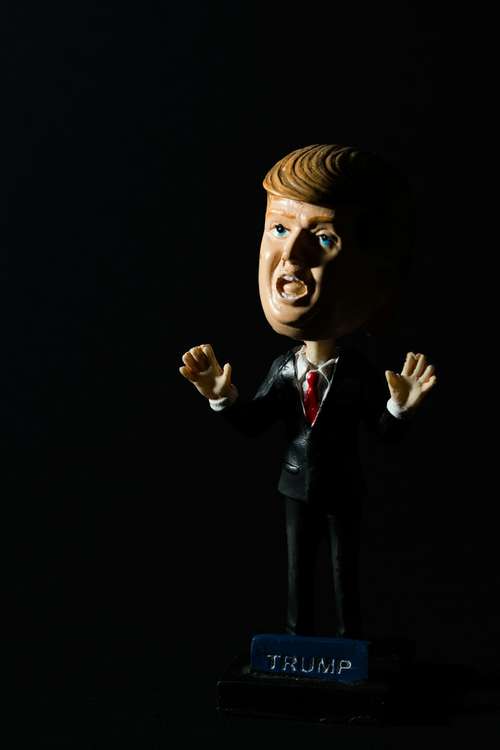It’s a story that might feel ripped straight from a political thriller: President Trump has pardoned the jailed Binance founder, igniting debates over legal decisions and political motivations. The news hasn’t just stirred up the legal arena—it’s been shaking up the broader crypto world too. You might find yourself wondering, how did we end up at the crossroads of blockchain, politics, and legal debates? This decision carries more than just legal consequences; it touches on personal relationships, business interests, and even the future of digital currency.
Every now and then, you come across an event that makes you question the inner workings of power and influence. This pardon is one of those moments—the kind that force us to consider whether justice is truly blind in the age of intricate crypto exchanges and high-stakes political maneuvers. While the details are still evolving, it’s clear that the ramifications extend far beyond one individual’s freedom.
Trump's Unconventional Move
The decision by former President Trump to pardon the Binance founder has raised many eyebrows across political and financial circles. In these busy times, when headlines blur into one another, this act stands out as a bold, if controversial, stroke of political audacity. Many commentators see it as a reflection of the complex relationship between Trump and the crypto industry.
It’s not every day that you witness a presidential pardon that touches on such a multifaceted issue as cryptocurrency. With legal battles swirling and the crypto market already notorious for its volatility, Trump’s move is being closely watched by everyone from legal analysts to everyday crypto enthusiasts. In his own style, this decision has been wrapped in layers of political symbolism and personal advantage, suggesting that there’s more to the story than meets the eye.
The pardon has sparked a debate that will likely linger for months and even years. How much consideration does a presidential pardon always have regarding legal precedence? And what does it mean for future cases where business interests, crypto innovation, and personal relationships intersect? As you mull over these questions, the complexities of politics and finance begin to intertwine in unexpected ways.
The Binance Founder and His Journey
The journey of Binance’s founder has been anything but linear. Known for building one of the world’s largest cryptocurrency exchanges, his story is a rollercoaster of rapid success mixed with sharp legal and regulatory scrutiny. The current developments mark a dramatic turn in a saga that has seen both tremendous highs and crushing lows.
This individual carved out a niche in the rapidly evolving world of blockchain technology. His involvement with a leading crypto exchange like Binance propelled him into a sphere where innovation meets risk, and where the boundaries of traditional financial regulation are constantly tested. However, his intersection with the regulatory environment also brought controversy and legal challenges.
The trajectory of his career mirrors the unpredictability of the crypto market itself. In one moment, he’s at the top of a rising digital empire, and in the next, he finds himself on the wrong side of the law. The recent presidential pardon, coming through political channels, has now added another twist, giving his journey a storyline that’s as complex as the technology he helped popularize.
Politics, Business Interests, and Cryptocurrency
This pardon represents more than just a legal decision—it’s a glimpse into the murky intersection of politics, business, and cryptocurrency. Many speculate that the move may be influenced by the founder’s ties to Trump family interests, particularly in the burgeoning crypto sector. Questions abound: are personal connections and business interests blurring the lines of judicial impartiality?
In today’s fast-paced political arena, it’s not uncommon for business and personal interests to collide with government decisions. Observing these events, you might compare it to a high-stakes chess game, where every move can leave a lasting impact on the overall outcome. This particular pardon hints at potential alliances that extend into the broader financial and political landscapes—alliances that could redefine how legal cases in the crypto world are handled in the future.
Real-world examples of such intersections aren’t hard to find. Over the past few years, multiple instances of political figures interacting with crypto moguls have sparked both excitement and concern among the public. The current case is a potent reminder of how intertwined money, influence, and innovation have become in our modern economy.
Legal Implications and Widening Horizons in Blockchain
Looking deeper into the legal implications, this pardon brings a set of questions that legal experts have been eagerly debating. How does a presidential pardon impact ongoing legal investigations into alleged crypto crimes? And what might this mean for the state’s move to regulate financial innovation? With our financial system rapidly embracing blockchain technology, such decisions could set precedents for years to come.
The legal community is abuzz with analysis. While some hail the pardon as a necessary corrective measure to what they see as an overly punitive regulatory environment, others believe it risks undermining the rule of law. It’s as if this decision has thrown a wild card into the mix, forcing regulators and lawmakers to rethink their approach to crypto regulation.
In addition, there is a growing sentiment among blockchain enthusiasts that the government should take a more balanced stance on cryptocurrency regulation. They argue that without clear guidelines, breakthrough technologies might either be stifled or misused. In this context, Trump’s pardon might be seen as an anomaly or even a catalyst for broader discussions about how best to integrate crypto innovation into our financial systems.
Industry Reactions and Future Outlook
So, what does this mean for the crypto industry at large? The reaction has been mixed, with some viewing the pardon as a necessary check on government overreach, while others fear it could set a dangerous precedent. Industry leaders and analysts are busy sharing opinions, drawing parallels to past instances where political decisions have shaped the direction of financial markets.
In our everyday conversations, we often talk about the importance of trust and integrity. Now, with a high-profile figure like the Binance founder receiving a pardon, the trust factor in the legal and crypto communities is under the microscope. Will this move encourage more leniency in cases involving crypto crimes, or will it galvanize regulators to clamp down harder?
Looking ahead, it’s hard to predict the exact ripple effects of this decision. Yet, one thing is clear: the story of Trump’s pardon is far from over. It might just mark the beginning of a new chapter where the lines between legal proceedings, political maneuvering, and the innovative yet sometimes unpredictable world of cryptocurrency blur even further.
As our society continues its rapid march towards digital and decentralized finance, decisions like these will likely play a significant role in shaping the future. It’s essential to keep an eye on how legal and political frameworks evolve to accommodate the dynamic nature of blockchain and crypto technologies.
This unfolding drama is a vivid reminder of how power, money, and innovation can collide in unexpected ways. Whether you’re a staunch supporter of legal reform in the crypto world or a cautious observer of political theatrics, there’s no denying that this event has set the stage for plenty of intriguing debates in the coming months. So, what will be the next move in this high-stakes game? Only time will tell!




